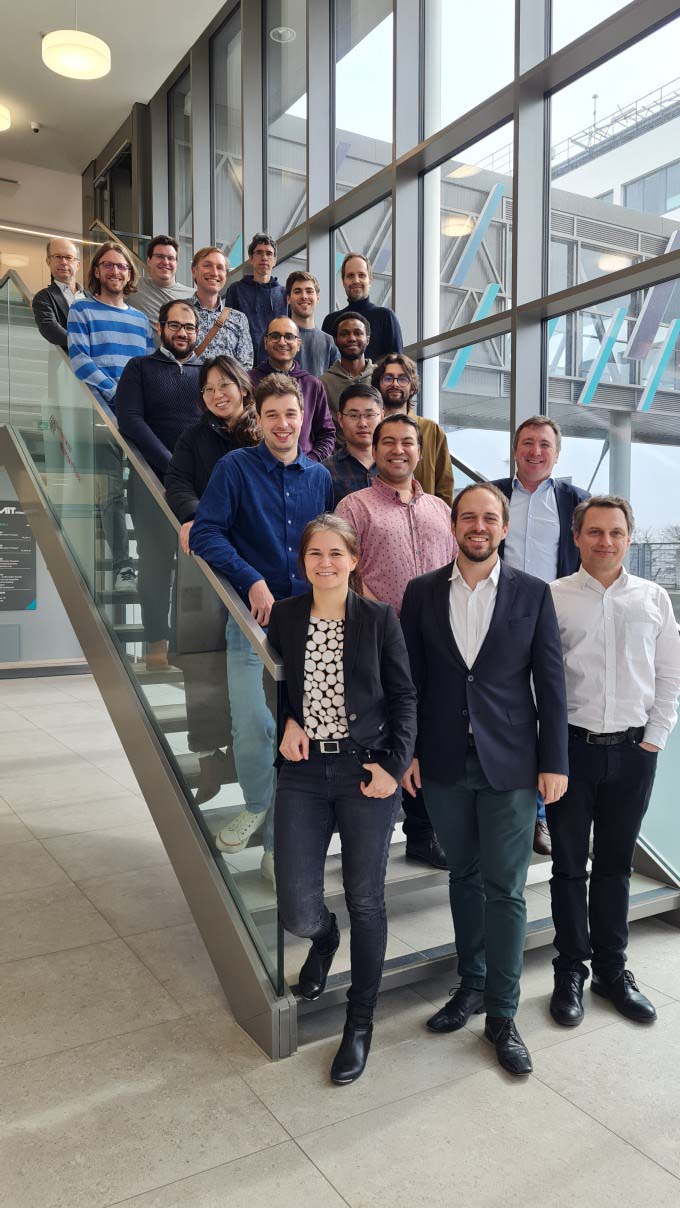AI for the Energy Transition: an Hackathon
From suggesting a better topological configuration of the energy grid, to detecting anomalies in the energy trade and suggesting more efficient energy trading strategies: there are countless ways in which AI can help streamline the energy transition. In fact: these are just the first three research directions Jochen Cremer and his team are investigating together with the Austrian Institute of Technology. To find out what other green pastures lie beyond these three approaches, this week TU Delft organized a Hackathon, together with the Austrian AIT.
The energy transition is one of the biggest challenges of our time and perhaps the biggest engineering challenge. It makes sense, therefore, to employ perhaps the most important emerging technology: Artificial Intelligence (AI). "Honestly, we have only started discovering the ways in which AI can help speed up the energy transition," says Jochen Cremer, head of the Delft AI Energy Lab and organizer of the Hackathon. "That is why we had this Hackathon: to just get together with the best PhD students and researchers, to explore what opportunities are hiding just beneath the surface."
We have only started discovering the ways in which AI can help speed up the energy transition
Jochen Cremer
The programme was divided up into three parts and three days. To get everyone up to speed, the first day was dedicated to state-of-the-art geometric deep learning models: the main tool for the rest of the programme. Geometric deep learning focuses on developing models capable of processing and analysing structured data, such as data derived from the energy grid. The models use advanced mathematical tools to extract meaningful features from these complex data structures, enabling them to perform tasks like graph classification, segmentation, and prediction. In other words: they make the immensely intricate system of the energy grid understandable.
PhD student Viktor Zobernig was one of the attendees of the Hackathon. "The workshop gave me the opportunity to share state-of-the-art methods that are used in Reinforcement Learning and Geometrical Learning. Even though the mathematical formulation, as well as the computational challenges, have a lot of similarities, the workshop demonstrated the complexity when choosing a method for a certain problem." Besides, he was excited to see new students and established researchers inspire each other: "Students really had the chance to deepen their knowledge by explaining and discussing their applied methods from scratch to an academic audience."
About Delft AI Energy Lab
The Hackathon was part of the Delft AI Energy Lab programme. Jochen Cremer: "This year our first three PhDs started their research, but we've already got a fourth lined up. They will research new ways to coordinate the charging of electric vehicles – a big challenge as our transport becomes more and more electrified. Not everyone can charge their car at the same time. And perhaps we can use the battery charge of unused EV's when there is little sun or wind?" To streamline all of this, AI can predict user behaviour and maximize the added value of their flexibility in the energy market. "Of course, without detriment to the health of the EV's battery."
Then there is the ongoing research in AI-assisted energy trading: a complex process with many factors to consider. "However, with the help of AI, we can develop better trading strategies that are more efficient and fairer. For example, AI can analyse data from weather forecasts, energy demand patterns, and renewable energy production to predict future energy prices accurately. This will allow traders to make more informed decisions and avoid overpaying for energy," explains Cremer. Furthermore, AI can assist in optimizing the distribution of energy to ensure that everyone gets the power they need.
"Unfortunately, insider trading can occur in energy trading. AI can help detect anomalies in trading patterns, such as sudden price changes or unusual energy consumption patterns, which could indicate fraudulent activity. This will help to ensure that energy markets are fair and transparent. This is another line of research we have already started," adds Cremer.
"The power grid is another area where AI can be used to optimize efficiency." By analysing data on energy consumption patterns and grid infrastructure, AI can identify areas where there is excess energy capacity or where energy is being wasted. This information can be used to make changes to the grid's topology, such rerouting power to more efficiently distribute energy.
Are you interested in a PhD project? Click here and send an email to j.l.cremer@tudelft.nl

